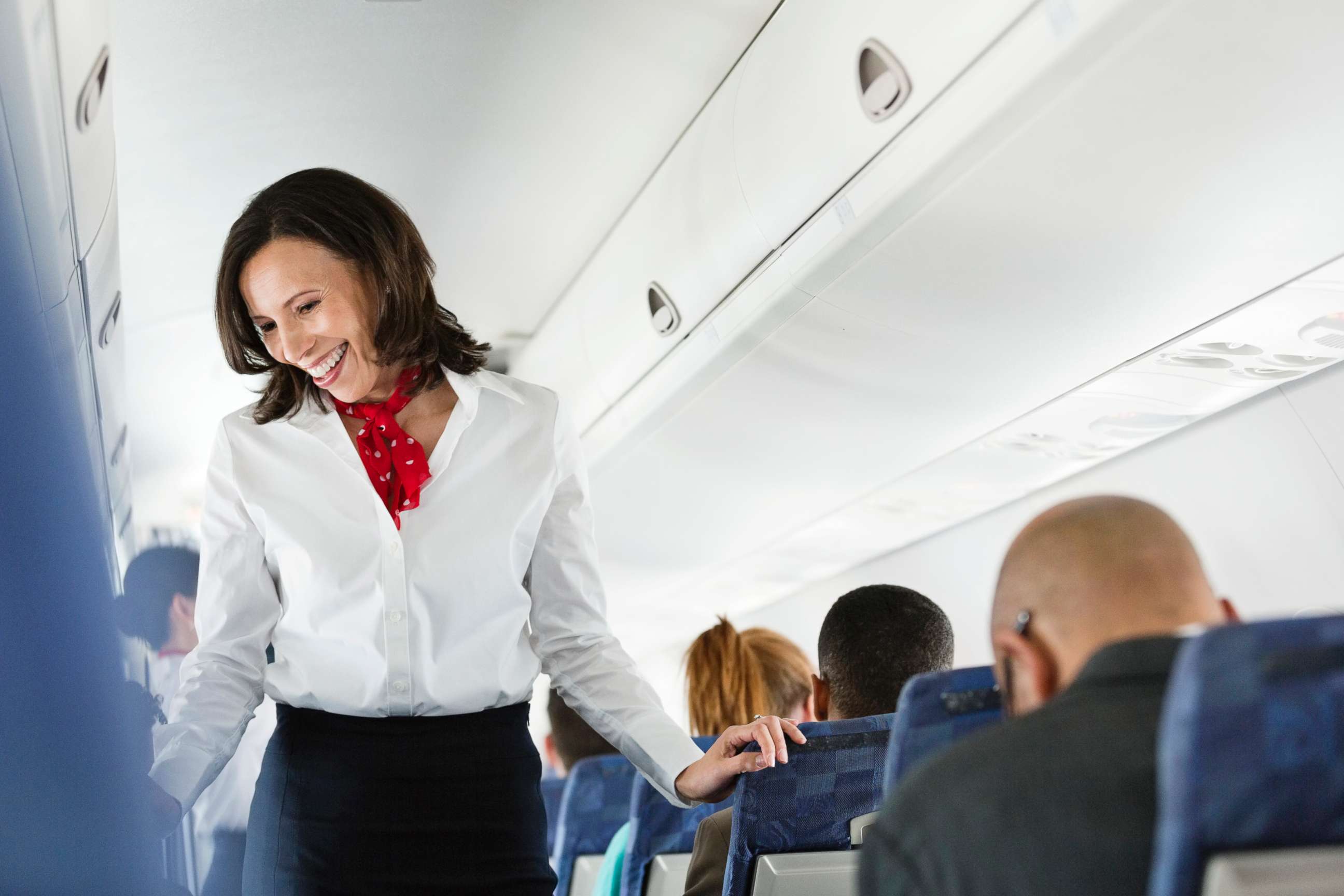Flight attendants may have increased risk for certain cancers: Study
A new study from the Harvard School of Public Health looked at the risks.
Working at 36,000 feet may come with a medical issue: flight attendants could be at an increased cancer risk compared to those of us who don’t fly as often, a new study finds.
This study surveyed more than 5,300 flight attendants (80% were female), and compared them to around 2,700 people who had similar income and educational status but worked on the ground, as part of the Harvard Flight Attendant Health Study.
The survey used validated questions from the Job Content Questionnaire and the National Health and Nutrition Examination Survey (NHANES). Of those surveyed, 91% were current flight attendants and 9% were former flight attendants.

Why are cancer rates higher in flight attendants?
This group of workers hasn’t been studied much, despite having clear factors related to increased cancer risk: they are exposed to radiation from the upper atmosphere, constant disruptions in their sleep-wake cycle, and contact with cabin chemicals like pesticides and flame retardants.
One of the most unusual risks is cosmic ionizing radiation (radiation from outer space that penetrates airplanes). During their in-flight time in the upper atmosphere, they aren’t shielded from that radiation by 35,000 feet of air, as they are on the ground. Ionizing radiation is particularly damaging to DNA, and damaged DNA can cause cancer.
There is sparse literature on this topic, and future research is needed to evaluate the association between in-flight exposures and cancer among the cabin crew, monitoring their exposure to ionizing radiation, and figuring out ways to minimize this exposure.
Which cancer risks are increased in flight attendants?
Female flight attendants had a higher prevalence of every cancer, especially breast cancer and skin cancer – including melanoma (the deadliest skin cancer) and other non-melanoma types of skin cancers, such as basal cell and squamous cell. This news stands out partly because flight attendants avoid many other common risk factors for cancer, like smoking and obesity.
"Our findings of higher rates of several cancers among flight attendants is striking given the low rates of overweight and smoking in our study population, which highlights the question of what can be done to minimize the adverse exposures and cancers common among cabin crew," said Irina Mordukhovich, lead author and a research associate at Harvard University’s T.H. Chan School of Public Health.
The amount of time in the air clearly matters; working for five years as a flight attendant increased the risk of non-melanoma skin cancers, but was not significantly associated with breast cancer or melanoma skin cancers.
What were limitations of this study?
This study is limited in a few ways: it used self-reported health information and only evaluates one point in time. Flight attendants were recruited, then people volunteered to answer surveys (that’s called selection bias – those with cancer or without cancer may have been more likely to want to participate).
It is also possible that some of these cancers occurred earlier in life, unrelated to their occupation, since they didn’t ask when the cancers occurred.
The study cannot say that being a flight attendant “causes” cancer; it can only make an observation that they seem linked.
How can cancer risks be minimized in flight attendants?
The US, according to the study authors, needs to catch up to the European Union (EU), which employs protections for their flight attendants. It requires airlines to monitor radiation dose (especially for pregnant attendants), organizes schedules to reduce radiation exposure, and informs workers of current studies.
What about customers who are frequent fliers?
Dr. Mordukhovich knows of no studies about cancer risk in frequent fliers, but they are at risk of being exposed to ionizing radiation and possible shifts in their sleep-wake cycles. 30 flight hours of exposure to ionizing radiation would equal one chest x-ray, but they spend much less time in the air than a flight crew.
As airline policy changes work to catch up with research, flight attendant and frequent fliers can take steps now to help protect themselves from possible cancer-causing agents. Wearing sunscreen while aboard a plane, sleeping on a normal sleep schedule on days not flying, exercising, and eating healthy foods all will help.
Dr. Karine Tawagi is an Internal Medicine resident in Ann Arbor, Michigan working in the ABC News Medical Unit.Petrina Craine is an emergency medicine resident physician in Oakland, California working in the ABC News Medical Unit.




